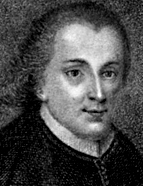

Of greater significance were the criticisms concerning the arguments legitimising and founding the monarchy, particularly the acceptance of the historical existence of the Cortes of Lamego as the defining moment for the law of royal succession. This was seen as the source of Queen Maria I’s power, as the dedication suggests, even though Melo Freire had elsewhere acknowledged that Alfonso Henriques held sovereign power not through the choice of the hosts at Ourique, nor by the Courts or the Pope, but through succession — since this power was granted by King Afonso VI of León to King Henrique (Historiae..., 1815 [1788], chap. V, §§ XXXVI-XXXVIII, p. 31; P. Ferreira da Cunha, op. cit., pp. 964-965). In his Resposta [Response], Melo Freire largely dismissed these criticisms, emphasising the need to select topics for a concise text intended to complement lectures and the Institutiones (Resposta..., 1809, pp. 3-4 and 17). He defended his position on the Cortes by arguing that they did not create royal power but rather reinforced it. He also invoked tradition and a mythical conception of history (P. Ferreira da Cunha, op. cit., pp. 968-969), arguing that one should not challenge the knowledge accepted as true and established by law and the nation. This, he claimed, was sufficient to validate the existence and authenticity of the sources, though he did reference authoritative works by Neufville, António Caetano de Sousa, and Fr. Manuel dos Santos to support his position (Resposta... [Response...], 1809, pp. 31-33; Historiae..., 1815 [1788], chap. V, § XL, p. 33). While Melo Freire's historical system draws upon ancient sources of law to support his arguments (P. Merêa, "De André de Resende..." [From André de Resende], 2007 [1918-1921], p. 24), it does not yet fully reflect the scientific historical ethos that was beginning to emerge through the critical studies published by the Academy (L. R. Torgal, op. cit., p. 29). As A. M. Hespanha noted (op. cit., p. 31), this compendium essentially represents the "[…] commitment of the history of law [...] to the construction of the new legal and political order."
This work is financed by national funds through FCT - Foundation for Science and Technology, I.P, in the scope of the projects UIDB/04311/2020 and UIDP/04311/2020.
